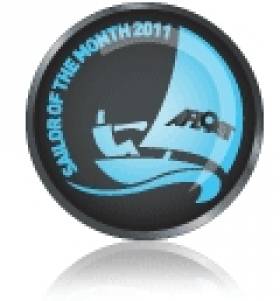Displaying items by tag: Breen
Martin Breen is June's Sailor of the Month
It's the fourth time that a Galway boat has won the Dingle race, giving Galway Bay SC unrivalled status, as the race has only been sailed a total of ten times. It was launched as a biennial event in 1993, and back in the day it was Donal Morrissey et al who started the process with two wins with the GK 34 Joggernaut. Then Eamon Conneely took both line honours and the handicap win with his first TP52 Patches, and now Martin Breen has done the business with his recently-acquired Reflex 38, which raced to Dingle under the moniker of Galway Harbour.
A former army captain, Breen's progress up the ladder of sailing achievement has been steady. He first made his mark with a successful Sigma 33, then there was more west coast sailing silverware taken with a Corby 33, and now he has the first Irish-based Reflex 38.
A hands-on skipper, for the race to Dingle he beefed up his usual ship's complement of family and friends with Galway's own Aodhan Fitzgerald, who in turn brought in Neil Spain and Johnny Murphy who had been on the Fitzgerald crew which won the round Ireland race.
Galway Harbour sailed a perfect first stage down the Irish Sea to lead everything on the water at the Tuskar Rock. On the long drag race to the Fastnet in a backing and strengthening southerly, only the Open 40 Pride of Dalkey-Fuji got ahead of the Galway boat, which managed to hang in despite blowing out a spinnaker and getting a tear in the mainsail.
By the time they reached the Fastnet, with the wind still veering they were already beating, and it was a slug into the Atlantic up to the next turn at the Skellig rock. The final stage into Dingle almost became a spinnaker reach, which would have been a problem as they'd blown out their reaching spinnaker on the south coast, but the wind stayed nor'west just long enough to get them into port and a superb win with a little bit of luck and a lot of talent





























































